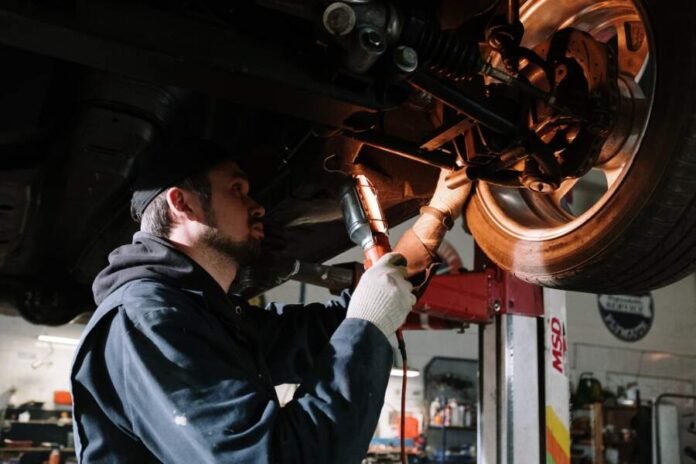Lemon cars are nothing new, and their numbers are constantly rising due to the negligence of manufacturers. Thankfully, lemon laws exist in many states to protect consumers against vehicles with manufacturing defects. The lemon laws of California are known to be some of the most stringent and comprehensive in the entire United States and are applicable to new as well as used cars.
The official term for California’s lemon law is the Song-Beverly Consumer Warranty Act and is applicable under certain circumstances. The Lemon Law can protect you if you bought a car with an existing manufacturer’s warranty and are facing persistent issues that remain unresolved even after multiple attempts to repair them.
Unfortunately, the law does not cover used vehicles that are sold “as is” without a manufacturer’s warranty. That is why you should always buy used cars that come with the manufacturer or dealer warranty if you want to be eligible for lemon law buyback.
If you are thinking of buying a used car, Conn Law, PC advises that you should always have a car thoroughly inspected by a trusted mechanic who operates independently. It would help you in the long run in case the vehicle’s history is not fully disclosed to you.
However, there have been instances where a seller has been held responsible by a court judge for selling a car with manufacturing defects. In this article, I’m going to talk about the specifics of the lemon law in California briefly so you understand how they can relate to individual circumstances.
Eligibility Criteria
Every state of the United States has its own version of lemon law with varying legal requirements for a successful team. For example, the lemon law may not apply to a used car in a lot of states. If a used car has to qualify to be protected under the lemon law of California, it must meet certain specifications.
Now, if you have just realized that your car has a manufacturing defect and it is still under warranty, it would not be automatically qualified as a lemon, no matter which state you live in. The manufacturer has to be given a certain number of opportunities to rectify the problem. If you want to know if your defective vehicle can qualify for a lemon law claim, these are some of the factors you should look for.
Your car should have a defect that significantly impacts the use of the vehicle or its safety. Normally, it applies to vehicles that are covered by the manufacturer’s warranty. You need to give the manufacturer or an authorized repair facility at least two chances to repair the defect.
You may also be eligible for a lemon law claim if your vehicle was sent for repairs more than 30 days ago and has not been returned to you. Additionally, the defect should not be a result of unreasonable or unauthorized use by you.
So, if you have just found out that your car might have a manufacturing problem, you must schedule an appointment with the manufacturer or an authorized repair facility and give them a chance to rectify the problem or replace the vehicle.
Traps to Avoid
If you are going to file a lemon law claim, you should be aware of the traps You might face from the automaker’s legal team. And believe me, they are going to throw every little legal tactic they know to save their client from compensating you. Thankfully, there are a few common ways they use to compromise your claim.
Do Not Sign Anything without a Lawyer’s Consent
A common tactic used by manufacturers is to get consumers to sign their warranty and lemon law rights away. They will try to offer you a warranty extension or reimburse you for a month or two’s payment if you are experiencing problems with your vehicle.
It usually comes with a settlement and release agreement regarding the car’s repair history. But if you sign this, you will give up your right to pursue a lemon law claim or anything that has violated the warranty. Obviously, these are mentioned in the fine print, so always get a lawyer to scrutinize any document that you sign thoroughly.
Do Not Accept Arbitration
The manufacturer will try every trick in the book to convince you to go for arbitration instead of taking the lemon law claim to court. Arbitration is when your case is taken to one or a panel of arbitrators who will determine if your case is valid or not.
Unfortunately, arbitration also comes with clauses that will make it impossible for you to sue the manufacturer in court. Also, your chances to win via private arbitration are quite low, and even if you do win, you will get a lot less money. So make sure you say no to any persuasion to go for arbitration, no matter how convincing it may sound.
Do Not Skip Lemon Law Clauses in Purchase Orders
Some manufacturers tend to include an arbitration clause in the purchase agreement. For instance, Tesla adds a forced arbitration clause in the purchase order, but buyers have the option to “opt-out” within 30 days. Unfortunately, this is not always disclosed openly and can be found only when examining the purchase agreement thoroughly.
If buyers do not notify Tesla about opting out within 30 days, they cannot file a lemon law claim in a court of law. So make sure you or your lawyer goes through every little detail of the purchase agreement to save yourself from arbitration clauses.
Look for Attorney Fees Clauses in Out-Of-Court Settlements
As per the Federal and California Lemon Law, as a consumer, you have the right to claim attorney fees and any other expenses you may have undergone to file a lemon law claim. Most of the lemon law claims are settled out of court with specialized attorneys. However, in these cases, manufacturers might try to place the consumer on the hook for attorney fees.
In some circumstances, the defense attorneys will try to charge their fees to the consumer. The manufacturer might refuse to pay the attorney fees in its entirety or comply with the court’s decision, in which case you might have to take them to the court to receive your complete compensation.
In another scenario, the manufacturer may try to settle the claim with a small cash amount, which may not be enough to compensate for your attorney costs or other expenses. If that happens, the defense team will refuse to pay a lawyer incurred on your behalf.
Read also: How Can A Motorcycle Accident Lawyer Help My Case?



































































